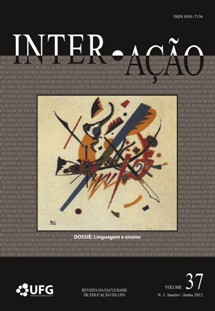IF FREUD WERE TO VISIT OUR NURSERY SCHOOLS: MATCHES AND MISMATCHES BETWEEN CHILDREN AND ADULTS
DOI:
https://doi.org/10.5216/ia.v37i1.18870Abstract
Freud says that he would not need to have written the Three Essays on the Theory of Sexuality if people knew how to learn from the direct observation of children. For Psychoanalysis, there is an indissoluble link between knowledge and subjectivity, since the relationship with the other is fundamental for building knowledge. We believe that the meeting between adult and child carries within it the signs of a mismatch in knowledge. By sharing this point of view, we emphasize in this study that such a mismatch in knowledge promotes ways of not-knowing, leading to a movement of learning located in both the child’s experience and in that of the adult.Downloads
Downloads
Published
How to Cite
Issue
Section
License
Inter-Ação uses the Creative Commons Attribution 4.0 License for Open Access Journals (Open Archives Initiative - OAI) as the basis for the transfer of rights. Open access means making documents available on the Internet free of charge, so that users can read, download, copy, distribute, print, search, or link to the full text of documents, process them for indexing, use them as input data for software programs, or use them for any other lawful purpose, without financial, legal, or technical barriers.
Authors publishing in this journal agree to the following conditions:
1) Authors retain copyright and grant the journal the right of first publication, with the work simultaneously licensed under the Creative Commons Attribution License, which permits redistribution of the work with attribution and first publication in this journal.
2) Authors are permitted to enter into additional, separate agreements for non-exclusive distribution of the version of the work published in this journal (e.g., for publication in an institutional repository or as a book chapter), with attribution and first publication in this journal.
3) Authors are permitted and encouraged to publish and distribute their work online (e.g. in institutional repositories or on their home page) at any time before or during the editorial process, as this may generate productive changes as well as increase the impact and citation of the published work.















